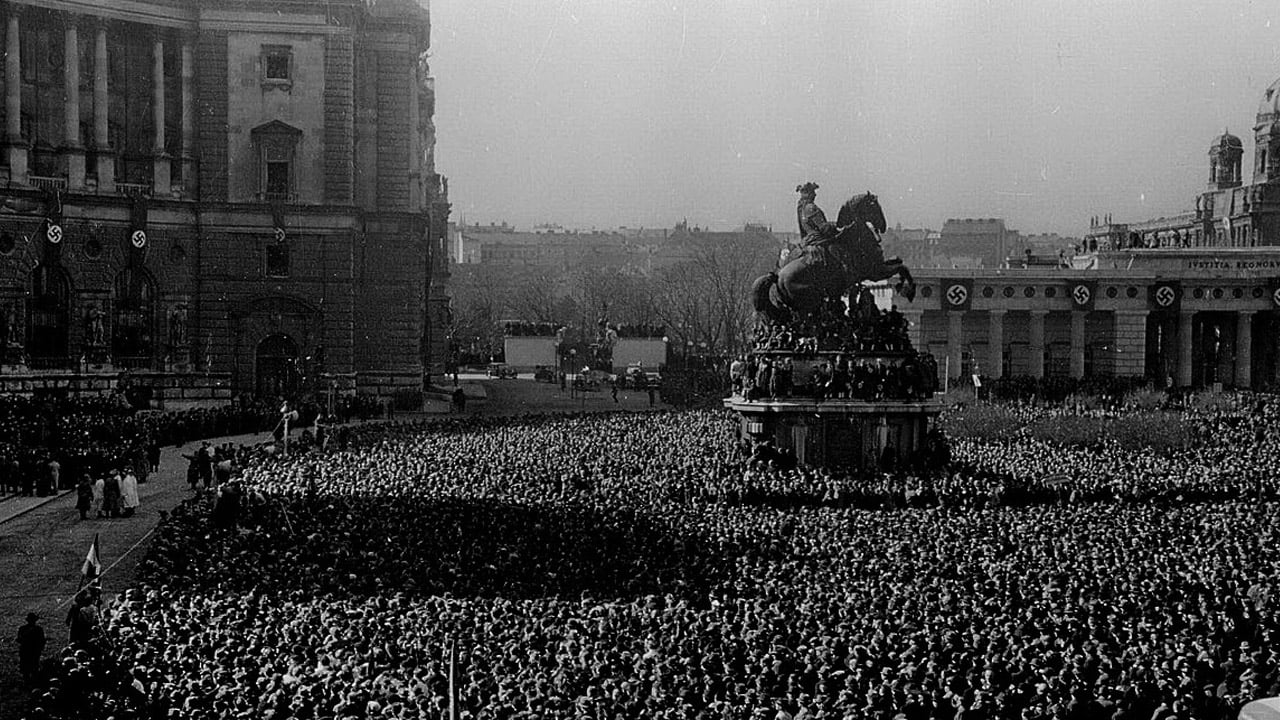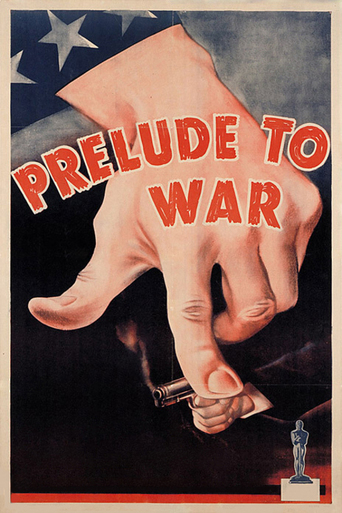Evengyny
Thanks for the memories!
Humbersi
The first must-see film of the year.
Rio Hayward
All of these films share one commonality, that being a kind of emotional center that humanizes a cast of monsters.
Payno
I think this is a new genre that they're all sort of working their way through it and haven't got all the kinks worked out yet but it's a genre that works for me.
oscar-35
*Spoiler/plot- 1942, A film showing and speaking of the conditions that made WW2 to many perceptive folks, inevitable. This film is often called- "Why We Fight, Part 1" *Special Stars- Narrator: Walter Huston *Theme- War comes to a country when it's least prepared.*Trivia/location/goofs- Public domain film, no copyrights left, never renewed. Free.*Emotion- An enjoyable documentary made up of live action combat or newsreel footage. But it is extremely educational and does what a narrative simulated war film can do.
Brandt Sponseller
Prelude to War is the first in a series of well-made propaganda films that were co-directed by Frank Capra during World War II with the intention of educating new U.S. soldiers about the war while inspiring them to fight for "what's right". Watching them at this point in time, they are fascinating as a glimpse into more or less official propagandistic stances. Of course it's to be expected that the films go to pains to dehumanize, even demonize, then enemy cultures. Because this specific material is so far removed from our current stances and concerns, it's instructive to watch and especially to show it to students, because it's much easier to see through the propaganda tactics, enabling similar tactics to more easily be identified in modern politics.But perhaps surprisingly, Prelude to War and the other films in the series also contain a good deal of accurate factual information, so that unless you're a World War II buff, you can learn quite a bit about how the war progressed and at least one side of why it progressed (one of many necessary sides)--if you watch the series with a critical eye.The series also contains a lot of intriguing historical footage--including films of Axis military campaigns in execution, and some of the more typical newsreel-type shots of the three Axis leaders--Hitler, Mussolini and Hirohito, their right-hand men and their military and civilian support systems. Just as notable now is footage of various aspects of American life that would have passed by without much thought in 1943--such as cars traveling on relatively sparse, newly built U.S. highway interchanges. You can gain as much from Prelude to War by simply watching the images and keeping in mind the historical context as you can by listening to the narration.There are a couple rough spots--a montage of Axis armies marching like huge, well-oiled machines probably goes on too long 60-something years later, but surely the aim was to put just a bit of fear as well as an increased fervor to conquer into the new U.S. military recruits.This film isn't crucial viewing for everyone, but for those who study history, politics, sociology, the military and especially World War II, it is essential.
rvosa
The series "Why we fight" was US government propaganda to explain to American soldiers, and later the public, why the US was involved in WWII. It is very interesting to watch, and a good way to learn what Americans thought (or were supposed to think) at the time - but on its own this series does not provide an accurate account of the war.Obviously, this was made before political correctness existed, and you can tell: there is talk of 'Japs', the Holocaust is largely ignored. Also, the movie is necessarily ambivalent about the Russian role, who were allies at the time. For example, the Molotov-Von Ribbentrop pact (especially the annex about the division of Eastern Europe) goes virtually unmentioned, and the Red Army's reasons for showing up in Eastern Poland are nebulous.On the other hand, the movies are quite detailed about the people involved, the various Nazi leaders and so on - who would have been household names at the time, but would probably be left out of present day WWII documentaries. Also interesting is that one of the reasons, apparently, why Nazism must be fought was their union busting - surely a reflection of the post-Depression Roosevelt era.All in all, well worth watching. I rate this highly both because it is essential viewing as an historical document, and because it is very well done propaganda (Frank Capra, animations by Disney)! Note that the US government has placed these movies in the public space, which means that perfectly legal, digital versions can be found on the internet.
Cookie003
This film is a great opening to the entire series convincing and American public why they are entering WW II. This film shows the viewer much more about American ideals right after the events of Dec 7th 1942.Some of the language is a little hard to handle and the overt nature makes the viewer laugh more than once, its great to look at old training videos as the try and instill a sense of pride in America and hate over the enemy. Recommended viewing for anyone looking into WW II propaganda, also used as a good counter argument to Triumph of the Will.

